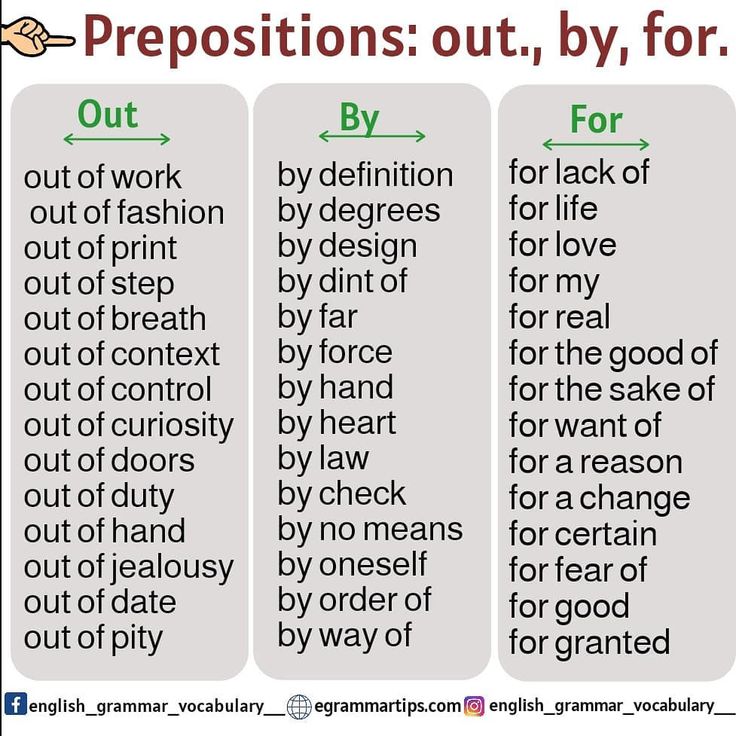Why does my husband complain so much
20 Steps for Coping With a Husband Always Complaining About Something
We all experience moments when it’s necessary to vent frustration to relieve stress and upset, but keeping them inside is unhealthy once the feelings escalate.
But a husband always complaining about something with no attempts to solve the problems or willing to listen to sound advice or accept help can result in a spouse feeling annoyed by the constant negativity created in the home.
That negativity can deplete any positive energy bringing the other person down. In the same way, joy and contentment are contagious; criticism and unhappiness can be as well.
Why does your spouse continually complain?
Someone who complains all the time can have numerous reasons, whether there’s a need for validation or attention, the feeling that responsibilities aren’t met, or generally having a low bar regarding frustration.
When a husband complains about everything, he’s often unaware unless you say something to him. Unfortunately, in many cases, when a husband complains all the time, it’s challenging for him to stop the behavior, nor will he likely do so without some professional guidance.
20 steps to take with a husband who’s a constant complainer
All marriages and relationships endure their share of challenges. Many experience episodes of negativity, with one or both pondering the question, why do people complain all the time, at some point.
Typically, there’s one who tries many different solutions to deal with people who complain all the time. There are a few steps to follow to assure the relationship’s health and mutual respect for each partner.
1: Develop boundariesSetting personal boundaries doesn’t mean that you’re shutting the other person out, nor does it mean that you don’t want to listen to what they have to say.
It merely means that there will be guidelines, including not directing criticism towards you.
In return, you will be thoughtful with your behavior to avoid unnecessary hurt with the complainer.
In this way, each of you will learn a healthier way to interact in the relationship, while the person venting might find less reason to do so.
Related Reading: The Importance of Discussing Sexual Boundaries With Your Spouse
2: Don’t react on impulseWhile you know your husband is always complaining about something, it’s essential to recognize the intense emotions, predominantly the negative, and avoid lashing out, ultimately resulting in conflict instead of benefiting either of you.
Instead, pay attention to the complaints, listening objectively to see if there’s a solution towards which the two of you can work. Once the complainer feels heard, there should be a sense of clarity and a willingness to help you resolve the problem.
3: Fight or flight responseIf a partner feels attacked when they view things as “my husband is always negative towards me,” it can be perceived as criticism and taken personally.
A mate will automatically react to an attack either by responding in kind with equally negative remarks or can withdraw emotionally from the marriage.
The better approach would be to attempt to reply with neutral comments for which there would be no “comeback,” perhaps along the lines of “I can see that,” “you could be right,” you’ve given me something to consider.”
The approach tells your partner that you’re paying attention to their comments but offering kind, productive solutions without any power struggle intended.
Also Try: Do We Fight Too Much Quiz
4: Become knowledgeable on the subjectIf you notice yourself feeling like “my husband complains about everything I do,” research the topic of complaining and criticism in marriage to learn ways to cope and how you can help your mate.
You can generally find so many resources online, and often these sites recommend literature, books, and even professional services you can turn to for solutions.
No marriage is always going to be full of roses and sunshine. Each mate will go through periods of frustration, aggravation, and the need to vent. Who else better to share troubles with than your spouse?
But when it seems as though the complaints are constant and becoming small, almost like complaints merely to hear themself complain, the negativity can be a sign of something more profound.
It’s essential to focus on where the complaints mean to be directed, whether work, relationship, showing signs that they’re in some way put upon.
The spouse needs to see that you notice they’re unhappy, but you’re available for them, but they need to help you understand so you can help.
Related Reading: 15 Signs You Are in a ‘Right Person Wrong Time’ Situation
6: Try to avoid internalizing the negative vibesSometimes the negativity is rooted in an issue having nothing to do with the relationship or you, as the partner.
As mentioned, it can be an underlying cause elsewhere, making it crucial that you not internalize the negativity – even if it is related to the relationship.
These are merely problems that need working through. That doesn’t make you the cause or at fault.
Your spouse is just incapable of verbalizing healthily what the genuine issue is.
7: Learn active listeningPeople today are challenged listeners meaning minds are too busy to pay attention, whether it’s to a husband always complaining about something or an average conversation with a friend.
If your husband doesn’t feel like he’s heard, he will continue on the same page until he does. Instead of multitasking while nodding along to the conversation, sit down face to face with eye contact and pay attention to what’s said. It might redefine venting for the complainer.
Learn to listen better with this video:
When it seems a mate is continuously lamenting over a subject that’s going poorly, they are likely unaware of the fixation, with an inability to refocus their attention.
If you make an effort to turn the conversation to a different topic, perhaps check in on another part of what’s happening in the day-to-day for which your partner might be psyched.
You can also see if they can help you out with some challenges you’re having, it could change your mate’s whole vibe.
Related Reading: 15 Mind Games Insecure Men Play in Relationships and What to Do
9: Shift the attention to the positiveRegardless of the focus of the negativity, it’s critical to help your spouse find some semblance of positivity, if not in that particular situation, in other areas where they prevail.
Negativity can be all-consuming if allowed and can often lead to bouts of stress, episodes of depression, and anxiety if left to get out of control.
Reminding your mate of those things working out well or the parts of life that are under control helps bring things back into perspective.
10: What can you do for your husband?A spouse needs to know their mate is fully supportive of them in every situation. When there are complaints or criticisms, if you merely suggest that you’d like to help in any way you can, that’s exceptional to hear when there appears to be no solution.
Instead of focusing on the problem details, you make it known that you’re available to participate in a constructive conversation to make them feel better.
Your husband might just need someone to listen or offer some sound advice.
Related Reading: 101 Sweetest Things to Say to Your Husband
11: Try to discern when the complaining startedIf you find your husband always complaining about something, try to discern when it began. The real issue could be completely unrelated to the actual venting that’s occurring.
What was happening in the relationship, the home, at work, anything possibly out of ordinary circumstances that took place simultaneously to bring the change? That will give you a start towards coming to a resolution.
12: Communicate the way the complaining is affecting youCommunication might be challenging for your spouse, but you must lead by example to share how their negativity affects you.
Perhaps you feel as though the relationship and the life you’re attempting to create together is unappreciated.
There’s also genuinely little opportunity for you to have a bad day or vent when you have a husband always complaining about something.
It leaves you with pent-up feelings and emotions and no one to share. Once they see it from your point of view, it might change their mindset.
Also Try: What Is Your Communication Style?
13: Set your mood without a second thought to your mate’s demeanorYou don’t have to allow your husband to always complain about something to dampen your spirit.
The negativity will go on whether you fall into the depths of the darkness with him or allow yourself to experience joy.
If your mate has made up their mind to complain, find your positivity and make the most of each situation.
Ultimately, you’ll have a good time on your own while you allow (and respect) that your spouse would instead prefer to sulk in the corner.
14: Don’t allow the relationship to turn toxicYou can’t assume full responsibility for the happiness in the union. You can show support and even empathize with the person you love, but that doesn’t mean you can control how they feel in every situation.
The reality of the situation is if someone wants to gripe and complain about every little thing instead of finding a constructive way to communicate their feelings and attempt to resolve them, you can’t force them to do so.
When you encourage it but having to explain their mood away and feeling a sense of responsibility for their mindset leads to a toxic situation. That’s when you need to consider professional guidance.
That’s when you need to consider professional guidance.
Related Reading: How to Handle a Toxic Girlfriend and How It Affects the Relationship
15: Express the need for your mate to own their moodsOnce you disallow accepting responsibility for your husband’s negativity, it’s next time to encourage him to take that responsibility independently. When the experience starts, the complainer is typically unaware of the behavior.
Still, once you make the person aware and it continues, it’s up to them to learn how to manage the emotional turmoil they bring to themselves and consider ways to improve or keep the problem from affecting other people, especially their spouse.
You can explore ways to cope with helping them understand empowerment and self-awareness.
16: Take time apartWhen you set healthy boundaries, and these are not being respected, creating a challenge for you to remain an individual in the situation separate from their path of negativity, remove yourself from the scenario to take control of the boundaries.
Related Reading: 10 Signs You’re Not in Love Anymore
17: Don’t engage with your spouseAfter some time of a husband always complaining about something, it can begin to become contagious. You might start to notice the desire to complain or find yourself becoming negative.
You should avoid the urge since it will only create a worse situation and make your mate even moodier.
18: Develop constructive communication and positive reinforcement as a teamGriping and complaining to someone can come across in a nagging and controlling context where communicating with each other in a constructive and with requests followed by appreciative recognition warrants better results and can ultimately eliminate the need for complaints.
Related Reading: 25 Valuable Pieces of Advice for an Unhappy Marriage
19: Reset the mindset for a different resultFrequently, complaints and negativity are due to some sense of dissatisfaction with a component of daily life, whether it’s your relationship, work, social circle, personal frustrations, or unfulfilled needs.
An ideal method for breaking up the day-to-day is to try something off the schedule. Encourage a new activity or make an attempt at spontaneity, perhaps enjoy a day away together to help rejuvenate your mate.
You can make a point of doing something different at least once a month to keep the routine fresh and exciting, giving your husband something new to look forward to regularly.
20: Seek counseling from a professional therapistIf you find your husband always complaining about something and inherently harmful regardless of your efforts and support, a professional counselor can offer impartial guidance in a unique light.
You can suggest with the assurance that you will attend if that’s warranted but will also be there to support them behind the scenes.
Related Reading: 6 Signs That Tell You May Need Marital Counseling
ConclusionA spouse finding themselves in a situation where their mate is constantly in the throes of a personal crisis can feel drained and depleted of energy.
Healthy marriages take considerable work, but when one person seems always dissatisfied, it brings the other down.
It’s critical to find a way to be supportive and communicative without losing sight of your positivity and boundaries.
Why We Complain in Relationships and How to Stop
Complaining is commonplace. In fact, we’re wired for it. But left unchecked, it can create serious problems in our relationships.
The dishes are piling up again, and you feel like you’ve asked your partner to clean them up a million times. Yet, no matter how many times you ask, it never gets done. Why is that?
It could come down to one thing: complaining.
This is a common, understandable strategy. Spotting problems is one of the many ways our brains keep us safe.
But, if we’re not careful, it can also spell trouble in our closest connections. With a little intel from trusted relationship experts, it’s possible to address problems differently.
Everyone complains from time to time. But how much is too much?
But how much is too much?
“If you are looking for a rule, John Gottman, noted relationship expert, claims that the magic ratio is five to one,” says Marisa Flood, a relationship coach. “This means that for every negative interaction during conflict, a stable and happy marriage has five, or more, positive interactions.”
If you find yourself constantly complaining, there’s likely an underlying reason. You may be seeking:
- connection
- validation
- attention
- resolution
- empowerment
Modeling
Complaining may have been modeled to you during childhood by your caregivers. You may associate it with love or think it’s the best way to get your needs met.
Social customs
It can also be cultural. In Ireland, “slagging” is often used to show affection. In the United Kingdom, you may “take the piss” out of someone you feel close to. In Australia, it’s “taking the mickey” out of your mates. All these forms of interaction may be misinterpreted if you’re not used to them.
Resentment
You may complain because you harbor old resentments. In this case, your pain may come out sideways in the form of a complaint.
Not only can it strain your relationships, but research shows that emotional suppression may even be bad for your health.
Projection
“When we don’t like something about us — the way we look, how we relate to others, or anything — we can project those shaming feelings onto others,” says Chris Tickner, a licensed marriage and family therapist in Pasadena, California.
From home to work, complaining can put a wedge between you and those you care about.
Romantic relationships
Complaining may lead to Gottman’s “Four Horsemen of the Apocalypse,” a model of behavior that predicts divorce.
The Four Horsemen include:
- criticism
- contempt
- defensiveness
- stonewalling
“I’ve never seen nagging or complaining be an effective strategy,” says Jake Porter, a couple’s therapist in Houston, Texas.
“I’ll ask someone to consider how many thousands of times they’ve complained to their partners, and then how many of those actually worked. The only answer I’ve ever gotten to that question is: never.”
Parent-child relationships
Children don’t process information the same way that adults do.
When you complain, it may be difficult for your child to understand why you’re so upset. They can have a hard time separating the behavior from who they are as a person.
They may also miss important context. For example, you’re in a bad mood because you had a rough day at work, you’re exhausted, or you just got some bad news. Instead, they may internalize your complaint as a character defect on their part.
As a result, your child may display:
- fear
- guilt
- shame
- perfectionism
- people-pleasing
- avoidance behaviors
- walking on eggshells
Interpersonal relationships
Complaining can have a negative impact on our friendships and work connections as well. “Over time, we can pull away from each other,” says Tickner. “No longer do we find the other person safe, or inviting, so we begin to find ways to avoid contact.”
“Over time, we can pull away from each other,” says Tickner. “No longer do we find the other person safe, or inviting, so we begin to find ways to avoid contact.”
Research shows that conflict resolution is one of the protective factors of marriage.
In fact, there’s a “right way” to complain. Effective communication is kind, empathetic, and direct.
Swap your language
| What to do | Complaint | How to adjust it |
|---|---|---|
| Trade a negative for a positive | “You’re so lazy, you haven’t even gotten dressed yet.” | When your husband gets dressed up, say: “You look so sexy. I can tell you put a lot of effort into looking good tonight. I appreciate you.” |
| Use “I” statements | “Oh, big surprise, you forgot to take out the trash again.” | “I feel hurt that you didn’t take out the trash after you promised me that you would.” |
| Focus on specifics | “You never call me back. ” ” | “This afternoon, I was hoping to talk to you about what color paint to bring home. I felt frustrated when you did not call me back.” |
| Ask how you can help | “You always leave the lights on when you leave the house.” | “When I got home, I was upset to see the lights on. How can we work together on this, so that the electricity bill isn’t so high?” |
Change your tone
What you say is as important as how you say it. Remember, it’s not you versus them, it’s you and them versus the undesirable behavior — you’re on the same side.
Before you share how you feel, try taking a few deep breaths to ground yourself. Consider how you’d like to be spoken to. Imagine the inner child of the person you’re speaking with, and address them with loving-kindness.
“Signal safety to your partner with soft eyes, a gentle voice, perhaps even a smile,” says Porter.
“Call your partner to be on your team, to act with you in the best interest of your relationship. That will get you much further than posing the problem as if the two of you are in such a conflict that someone will win and someone else will lose.”
That will get you much further than posing the problem as if the two of you are in such a conflict that someone will win and someone else will lose.”
Pick an optimal time
Timing is everything. If your partner is running out the door on the way to work, that’s the wrong moment to lodge a complaint. Same goes if they have a deadline, a presentation, or a tough day ahead.
Try to pick a time when both of you feel relaxed. Carve out space to sit down and work through the issue. Then, set some parameters around it. For example, “Can we talk about something for 15 minutes?” and go from there.
Write it down
It may help you to stay on track if you write down what you want to say beforehand. Try jotting a few notes on an index card, or send them a polite email as a heads up.
Reflect on your needs
You may think you’re complaining to your partner about not doing the laundry, but chances are it’s much deeper than that. Pull out a journal and do some digging. Ask yourself, “What is this really about?”
Ask yourself, “What is this really about?”
“As I say to the couples I work with: The problem is rarely actually the problem. Spending a little time reflecting on what’s beneath the surface level content of our nagging can reveal much larger, deeper needs,” says Porter.
“Sharing from that emotional space, rather than reactionary anger, sets us up to be better seen and heard and known. In short, it’s a much more successful path to intimacy.”
Adjust your expectations
Complaining comes from a gap between your expectations and the reality of the situation. The simplest way to release the need to complain is to reign in your expectations of another person.
For example, if you married someone knowing they love to stay up playing guitar until 2 a.m., it’s unfair to assume they will start going to bed at 9 p.m. sharp anytime soon.
There’s only one person who can change in this scenario: you.
Try to practice radical acceptance of the person who’s upsetting you. Focus on the things you love about them. Decide how you can show up differently in that connection.
Focus on the things you love about them. Decide how you can show up differently in that connection.
Make a gratitude list
Research shows that gratitude can have a profound effect on how you view relationships. At the same time every day, make a list of 3 to 10 things you’re grateful for, including your favorite qualities about the person you’re upset with.
Mirror it back to them
If your partner complains all the time, skip right to the heart of their request. Say, “I hear you saying that you would like the trash to be taken out. Do I hear that right?”
Depersonalize it
If your partner is always complaining about something, remember: it’s not about you. Underneath it all, try to remember that they love you; they may just be struggling to communicate their needs effectively.
Stand up for yourself
If the complaint hurts you, draw a boundary. You can say, “I understand that you’re upset about this, but I need some time to process what you just said. Let’s talk about this at another time.”
Let’s talk about this at another time.”
Share how it makes you feel
It may be tempting to fire back with, “You always nag me,” but that’s a recipe for disaster. Instead, use “I” statements. Try something like, “I feel hurt when you use that tone.”
Suggest couple’s therapy
It can be helpful to think of complaining as a symptom of a larger issue. An objective third party in the room can help you make sense of what’s going on.
“In therapy work, we begin to look deep into ourselves, and find the part of us that is hurt, or ashamed, or lost,” says Tickner. “Couples learn simple yet powerful tools and practices that build connection, soften communication, and diminish complaining.”
It’s common to complain or hear a complaint directed at you. But when it becomes too common, it can get in the way of healthy, happy relationships.
“We live in a culture that does not teach us how to love,” says Flood.
“The issue is not the complaint, but the box it comes in. We all have a right to raise concerns to our partner about things that are upsetting us, but not to do it in an unhealthy or toxic way.”
We all have a right to raise concerns to our partner about things that are upsetting us, but not to do it in an unhealthy or toxic way.”
To do just that, it may help to attend individual therapy or couple’s therapy. There are also several books on how to communicate effectively:
- “The 7 Principles of Making Marriage Work”
- “Love More, Fight Less”
- “How To Be An Adult In Relationships”
- “If You’re In My Office, It’s Already Too Late”
- “The Mastery of Love”
- “Keeping The Love You Find”
- “The 5 Love Languages”
“Husband constantly complains…” What to do?
“He whines all the time! I don’t have the strength to listen to all this…” lamented the tired mother of the family, whose own problems are over the top…
“good” tradition, over time it will begin to annoy even the most patient and sympathetic person.
How to act if your spouse began to practice such behavior regularly? How to act in a situation where the strong half constantly expresses dissatisfaction with the life situation and complains about everything?
There are several effective solutions.
- “Who is the boss in the house?”
- Do not listen, do not regret
- Silence in response...
- I believe in you!
- Sudden syncope
- Complicating the situation...
- Reaction variation
- Big Bang
- Motivation
- Specialist assistance
Psychologist consultation: +7 (926) 707 91 07.
1. "Who is the boss in the house?"
We all know that roles in a family do not arise, form and become fixed by chance - the key to their distribution is the behavior of people in marriage and the peculiarities of interaction with the other half.
Accordingly, one of the reasons that the husband has firmly entered the role of the “family crybaby” may be that you have long and confidently played the role of your husband’s mother in the family, a superhero - in general, anyone, but not a weak tender woman, who is really FOR her husband and who needs support and a strong shoulder.
All this doesn't mean you have to start whining in response. But demonstrating your femininity, starting to show weakness will be very helpful.
Let's analyze who is really the boss in the house, who is the family's hope and support... And then, if necessary, we will begin to gently adjust the roles and gradually remove our responsibility for something for which we are not at all obliged to bear it.
2. Do not listen, do not regret
The most important rule! But this is exactly how women often react, in whose very nature it would seem that it is supposed to console and help. But it’s one thing to comfort a child or help a husband solve a real problem, and quite another to regularly wipe the snot off a strong healthy man!
If such a bad habit has already been reliably developed, we gradually begin to abandon it: we don’t rush selflessly to listen and console as soon as the spouse starts the “old hurdy-gurdy”, we don’t provoke whining with leading and clarifying questions, we don’t try to be an all-understanding wife in this case. No need.
No need.
3. Silence in response…
Since childhood we have been accustomed to the fact that it is impolite to be silent in response when someone speaks to you. But in this case, an exception can be made, especially since whining often proceeds unaddressed - a spouse can habitually shake the home atmosphere with complaints in the air, without addressing anyone in particular.
To direct questions: “Why are you silent? You do not care?" - you can always sincerely and good-naturedly answer: "I don't even know what to say..." Well, why, in fact, you should know what to do if your spouse doesn't know it.
What else is good about silence in response to complaints? Remember your state when you spoke, and in response - silence? What do you feel? Dissatisfaction, some irritation - yes. But at the same time, embarrassment, inconvenience ... You wonder what they said wrong, why the person does not answer. The husband is also very likely to work this scheme - he can seriously think . ..
..
4. I believe in you!
Husband starts as usual: “How much can you do! I work hard, but there is no money ... And where can I find a normal job? It is not in our city (country, universe)…” And so on. Long, long and tedious ... He spoke out. Waiting for a reaction. You: "Yes, it's not easy... What do you think to do?"
At first, with a high degree of probability, you will hear: “I don’t know! / Yes, if I knew, I would have done it long ago ...” But in this mode, over time, most men come to understand that this problem has a solution, and only he can accept it.
Don't believe me? Try it. At the same time, do not forget to reinforce questions with motivating remarks (preferably not with stamps like “I know you can!” ), because any representative of the stronger sex needs to know that they believe in him!
5. Sudden fainting
Exaggerating, of course. )) But if you see that nothing can bring down the whining process, you start to wind up and are ready to break loose, just pretend that you are not very well . .. That you did not feel well. Moreover, this is the true truth - you really feel bad from this stream of negativity.
.. That you did not feel well. Moreover, this is the true truth - you really feel bad from this stream of negativity.
But you don’t tell your spouse about it, just say that you would like to lie down: “Something is a little dizzy - I’m tired today, and I was very nervous at work” ... That is, it’s not his fault, he should be offended by you It's my pleasure. At the same time, any normal person immediately understands that since it’s bad for another, then it’s definitely not the time to add their own problems to this.
Of course, you can rarely use this method and with the obligatory variation of your "painful" state. Why - I think it's obvious ...
6. Complicating the situation…
The common folk “getting mad!” to a situation with whining, as we understand it, it is applicable quite often.
A person somehow forgets that in life everything can be much more complicated and sometimes it whines almost out of the blue. If you are sure that this is the case in your case, add your spouse worries.
Let's say that at the moment he has lost his job, is permanently looking for it, and out of boredom torments you with complaints about his failed life. Purposefully load him with chores: pick up your daughter from the garden, take your son to hockey, go on your behalf, and finally take care of men's household chores.
Psychologists advise not to complain in response, but to describe in response your difficult situation (as you see it) without claims against your spouse and boring whining, it's quite normal. In no case do not protect your spouse in a sad state from worries, solving problems and difficult tasks - on the contrary, actively connect him to them! Calm and friendly.
7. Variation of reactions
We visually demonstrate to the spouse the difference in perception – we become animated at the slightest positive and noticeably boring when complaining. Not frankly pretentious, but softly and unobtrusively - we calmly adhere to the chosen tactics.
If a husband habitually enters into the image of a sufferer, let him speak out, but instead of a response that develops the topic he has set, he will receive another one - neutral, worldly. You can just casually voice a specific problem that needs to be addressed at the moment.
The main rule is not to act aggressively, not demonstratively, but naturally... Yes, a person may be unpleasant that he was not supported, but at the same time it will become obvious to the husband that it makes no sense to continue in the same spirit.
8. "Big Bang"
Yes, we are talking about a family scene, an outburst of emotions. Exactly what I so advised to avoid in the previous paragraphs. It would seem that there is a contradiction. But it's not. The Big Bang is a one-time planned action. This is heavy artillery, which can be used extremely rarely (once, maximum - twice). And in a pinch.
Here you express everything that has accumulated, while not crossing the line and maintaining respect for the personality of the interlocutor. Otherwise, such an "explosion" may not leave a stone unturned from your relationship. Or cause them very significant damage. And our task is not to break off relations with a spouse, but to cheer him up and get him out of a dull state.
Otherwise, such an "explosion" may not leave a stone unturned from your relationship. Or cause them very significant damage. And our task is not to break off relations with a spouse, but to cheer him up and get him out of a dull state.
Important! Such a “method” helps only if such behavior is not habitual for you, and even better, it is not typical for you in principle. In the case of regular "fighting", its use does not make sense - the spouse has long been accustomed to "bombing".
9. Motivation
To practice the tactics "I believe in you!" regularly add other motivational solutions. Do not hint, but directly say what you expect from your spouse - without claims and strict requirements. Unobtrusively set short-term goals for him to start with, which will be easy for him to achieve - success will help you forget about whining and start solving serious problems.
Do not forget to praise your spouse even for the smallest achievements - no matter what anyone says, men love competent compliments - and this perfectly motivates them.
Help your spouse move from being a rebellious or adaptive child to being an adult. It is in this state that a person is able to assess what is happening to him objectively, without dramatizing the situation and without overestimating his strength. Needless to say, we need an adequate assessment in exactly the same way. That is why it is better for us to approach the solution of pressing problems from the position of “I am an adult”.
10. Help from specialists
But what if nothing helps and the situation only gets worse? In no case do not over tighten! Here it is highly advisable to seek help from a psychologist or psychotherapist. After all, depression is not “just a bad mood.” This is a real mental disorder that sometimes requires serious medical treatment.
Health complaints cannot be ignored! If they are, it is important to make every effort to ensure that the spouse undergoes the necessary examinations. He doesn’t want to, he tries to dodge with all his might - we act in various ways, we try all the options. To cheat, threaten, scare - you can use any other "forbidden tricks", but you cannot ignore health complaints.
To cheat, threaten, scare - you can use any other "forbidden tricks", but you cannot ignore health complaints.
...In conclusion, I would like to add the following - never give up, never give up, do not fall into a reciprocal dull state. This is hopeless. We all understand that no one will come and solve problems for us - the responsibility for our life and its quality lies only with us. Despondency is a destructive feeling, it cannot be taken for granted. It is necessary to work with him - confidently and competently. And if we act correctly in this direction, we will definitely succeed! Checked…)
© Natalia Lutsenko, counseling psychologist
Sign up for a consultation
My husband is a whiner. A man constantly complains and whines
1. Help financially
Even if a man complains about financial difficulties, don't try to help him with money, don't look for a second job to get out of this situation. This will be a very big mistake, because of which a lot of women have already suffered.
2. Giving expensive gifts
Forget it! Better give a man more of your warmth, faith in him, admiring glances! Do not try to surprise a man with a luxurious gift, this will turn your relationship into enjoyment.
3. Hear about his problems and feel sorry for him
Some men are very fond of complaining to women. Usually these are not even husbands. And women think that if they listen to his pain, sympathize with him, then the relationship will become deeper. After all, we girls do just that! But it doesn't work with men. It’s just that this man will regularly merge life’s problems for you, come to you as a reliable “vest”, and he will walk and meet with other women. I had such an example in my life. I played the role of a “vest” for a very long time, listened, tried to cheer up, sympathized, then it seemed to me that our relationship was very deep. But these complaints did not go anywhere. And having tracked this scenario, after his next complaint, I simply said: “Well, nothing, you are already a big boy, you can handle it yourself and solve your problems. ”
”
I remember that at that moment I had such an amazing feeling inside me that I had done something very right. And he apologized and said that of course he could handle it himself, and thanked me for reminding him of this. Therefore, if your husband is in a depressed state, you don’t need to pull out of him with “pincers” what happened, you don’t need to bring him out to talk, you don’t need to feel sorry for him. Pity humiliates a man.
Give him time and leave him alone. He will decide everything. And the more calm you are, the faster he will decide everything and will be a more self-confident person. Well, if your spouse talks about his difficulties, then your support may lie in questions (in no case in advice). Ask leading questions, and you need to ask them from the position of a curious girl, and not a professional coach. It is very important that you show your position below at this moment, in your questions there should be an appeal to his will, strength, intelligence.
For example:
* Is there anyway to solve this problem?
* Do you think there are any ways out of this situation?
* And what can be done in this case?
Ask questions calmly and leave all decisions to your husband. By doing this, you will show him that you support him, that you are together and that you believe that he can find solutions. Men really need life's difficulties, lessons, problems - this is the key to his development, as a person and as a man.
FORGET IT. Even if a man asks what he should do, then you just need to say what he knows best. Giving advice means taking on some of the responsibility. Let's leave it to the men, they need it more.
5. Spiritualize him
I know that many women try to put books, turn lectures on loudly, put on videos. Usually this causes only rejection and rejection. You shouldn't do things like that. It is much more effective to become the happiest and most joyful, to learn how to communicate with people, to be a “firefly”, then those around you will begin to ask what you are doing to look like that.
BUT, if a man asks you to tell him about spirituality, or about some knowledge, you do not need to take on the role of Guru and broadcast. After that, he, of course, will respect you as a teacher, but he will completely forget that you are a woman. Therefore, we make a nice face and say: “Honey, I can’t explain to you, because I myself only understand a little. I have listened to this lecture. Listen to yourself if you're interested."
Thus, you will not take a position from above and crush the man with your intellect. This is the wisdom of a woman. One wise woman wrote to me that she began to take care of herself, stopped “pressing” her husband, became more joyful and generally forgot about promoting something to her husband. She lived and enjoyed herself. And after some time I found a whole stack of spiritual books of a very high level in my husband's nightstand. He bought and read them himself after she stopped putting pressure on him.
There are a lot of options for supporting a loved one, you can pray for him, perform austerities, engage in creative work for him, make amulets, do birth practices for his Family. The most important thing is to do it from a state of inner calm and abundance, with the right frame of mind.
The most important thing is to do it from a state of inner calm and abundance, with the right frame of mind.
Correct mindset: “Of course, he can handle it himself. And I will be very glad to serve him in this and fulfill my feminine dharma (destiny).”
The rescuer's destructive mentality: "He won't be able to cope without me, he won't get out, only I can help him." With this mindset, as soon as you pull him out of one "pit", he will immediately fall into another.
Unfortunately, in our imperfect world, not all men are knights and princes on white horses. To our women's misfortune, many men are not suitable for the role of a stone wall behind which you can hide from troubles and hardships.
At some point in the relationship, our defenders begin to whine, complain, complain about failures and dissatisfaction . From your lover you can hear a phrase like “I'm tired of everything. I'm tired and want to take a break from everyone." Should such outbursts of negative emotions be passed through one's fingers?
Definitely not. In no case should you encourage male whining. This kind of thing needs to be fought. You should not succumb to male weaknesses and shower your failed genius with undeserved compliments and useless pity. Why? Let's figure it out.
In no case should you encourage male whining. This kind of thing needs to be fought. You should not succumb to male weaknesses and shower your failed genius with undeserved compliments and useless pity. Why? Let's figure it out.
Why not encourage whining?
The desire to constantly complain about life and whine indicates a man's inability to live and his inability to solve current problems . In essence, whining is the desire to discuss only the negative aspects of life. The consequences of such chronic pessimism are failures at work, deterioration of family relations, alcoholism, etc.
It is not easy for those people who live next to a pessimist, such a territory of men can greatly lower self-esteem. Every day they are forced to take on a new portion of negativity, trying to please the whims of the loser. Such self-sacrifice may sooner or later affect the nervous system.
For this reason, such a seemingly harmless problem as male whining and self-pity should not be left to chance. We offer you several tricks, thanks to which you can protect yourself from male whining and eradicate the blues in your husband.
We offer you several tricks, thanks to which you can protect yourself from male whining and eradicate the blues in your husband.
Learn to listen
The ability to listen to an interlocutor is, of course, a valuable quality. It involves not only the ability to hear your partner, to catch his speech, but also to understand the course of his thoughts, the ability to lead a discussion. This skill is indispensable in building a happy and strong marriage.
However, if you feel that after discussing this or that topic, your husband begins to whine, turn off your ears. Just stop listening to him . While he's talking, clean up, do the dishes, or start doing your nails. Show him your lack of interest in listening to his outpourings. After a while, attempts to shed their daily sorrows on you will dry up. It's time to move on to the next one.
Move the conversation to another topic
Of course, it is not good to interrupt the interlocutor and transfer the conversation to another topic. But when the situation is close to catastrophic, then there may be no other way out. In order not to offend your loved one, ask him an unobtrusive question that does not fit at all with the storyline that he tells you about.
But when the situation is close to catastrophic, then there may be no other way out. In order not to offend your loved one, ask him an unobtrusive question that does not fit at all with the storyline that he tells you about.
You can also start talking about yourself. Translate the conversation with the phrase: “But it happened to me today ...” or “Do you know what I learned today?”. And start talking about your deeds and achievements.
Liven up the conversation
So that the conversation between you and your husband does not repeat over and over again according to an already known scenario, try to diversify it. Ask your spouse leading questions, ask about achievements at work and in general about his current affairs. Discuss a new film or play, talk about the weather, finally. Just don't let the conversation stagnate. Believe me, a husband and wife have a lot of topics to talk about. You just need to find them and be able to operate with them. Then your life will become much more pleasant.
Svetlana especially for
Love, as you know, is evil. You can fall in love with the eternally aching and plaintively suffering male representative.
Despite the fact that he is endowed with certain disadvantages, you still want to be with him, and in this case the only way out is to adapt.
If the faithful expresses dissatisfaction about certain areas of life, you should highlight the list of complaints that he voices most often. In this case, the relationship between the spouses will change for the better, as the wife will learn to respond correctly to her husband's complaints.
Joint sexual life is boring and uninteresting
By this the man is trying to express the idea that the wife should be ready for the fact that he will change. His willingness to discuss this issue suggests that he is not trying to look for a replacement, but is trying to achieve the desired harmony with you.
The wife in this case should not take a justifying position, but decide on a constructive approach and ask her husband what he proposes, discuss it and find the best option.
In no case should you switch to "fu-fu", "what a disgusting" and similar expressions. A woman's priorities are most often different, but it must be borne in mind that for a man, questions are always in the foreground, and arguments in favor of cleaning and cooking will not touch him.
The wife often and long stays at work
He feels abandoned and alone and tries to tell you about it. Simply put, he is jealous of your work and seeks to correct your attitude towards this issue.
What to do? Discuss work issues with him more, ask for advice, listen to his opinion. The man will understand that he is also a participant in the process, and will calm down.
You should not argue that you will be busy at work by saying that you will have nothing to live on - this will hurt your husband's pride, and the result will be the opposite. He will suffer even more and complain.
He will suffer even more and complain.
Dissatisfaction with the culinary skills of the spouse
A hungry man is capable of anything, he has poor control over his feelings and his words. It can offend and scream. It is worth taking a closer look at the issue of nutrition: offer joint creativity in the kitchen, this will unite you, and the man will feel that this is also work, and this process takes a lot of time. Will treat with understanding and more tolerant of the absence of dinner at the appointed time.
Phrases like "I'm not a cook" in this case will play a negative role - it's not worth explaining what everyone understands. He wants to eat and eat - if not at home, then there will be someone who will feed him tasty and without notations.
Complaints about feeling unwell
If they are groundless, then, most likely, the husband is trying to attract your attention, because you are too carried away by what you love. Or he does not want to do the work that you have loaded him with, and thus tries to step back.
The first thing to do is find out what kind of help he wants. If you really need a doctor, call, give medicine, that is, show care and participation.
One should not reproach oneself for lying on the couch all day long. If you need to do something, first take an interest in his well-being, then he will not be able to pretend and shift his worries to others.
There are lines that you should never say:
"It's all your fault!"
"I warned you!"
"Stop whining like a baby!"
"I have a lot of worries without you!"
Be tolerant and patient, then it will be possible to achieve harmony and mutual understanding in relationships.
We used to think that men are stronger than us and are always ready to support and protect us, console us when we are sad, and save us from any worries. It is customary to think that in a couple a man is stronger and more resistant, and a girl can afford to periodically fall into feelings. But here's what to do when you and your spouse seem to have been swapped - he constantly whines and complains, and you are steadily moving towards your goals and desires.
What to do and what to do when your beloved spouse whines all the time
Support for a man in difficult moments of his life is definitely one of your marital duties
, because he is ready to support you when you are sad. But what to do and what to do when your beloved spouse whines constantly - he either complains about his own health, or claims that he is depressed, or even says that everything around is wrong and everything is not right, and you are constantly doing something you don't do what he wants. Such a man constantly blames everyone around him except himself , the government and many others are to blame for everything, but not himself. On the one hand, it may seem that, of course, it is necessary to support, it is necessary to put him in a soft bed and pat him on the head, on the other hand, he is a strong man, and why should you even endure his whims and whining for no reason.
First method or “carrot method” is certainly able to help, but the effect is unlikely to last long. But when the husband begins to whine after that, his wife comes into an indescribable rage. The second option "with a whip" works much better and more efficiently, only now a man can only feel unwanted, lonely and start whining even more. So what to do in such a controversial but incredibly annoying situation? First of all, it is worth remembering that it is impossible to encourage the whining of a man of any age .
But when the husband begins to whine after that, his wife comes into an indescribable rage. The second option "with a whip" works much better and more efficiently, only now a man can only feel unwanted, lonely and start whining even more. So what to do in such a controversial but incredibly annoying situation? First of all, it is worth remembering that it is impossible to encourage the whining of a man of any age .
A man who is constantly dissatisfied with his life or any circumstances completely focused on the negative . And if you constantly feel sorry for him, this negativity will grow not only around him, but also around you. In this situation, he will no longer be able to concentrate on the positive, on his own dreams, and this threatens him with alcoholism, a desire for betrayal, or mental illness.
Think about how much energy you spend with a person who constantly whines. He spends not only his energy, but also takes your own energy . And such a course of events often leads to the fact that there are two “vegetables” in a pair at once. You feel really weak because you could not pull him out of the quagmire, and you were taught in childhood that "a real woman will stop a galloping horse." At this time, your spouse becomes even more mentally relaxed and begins to cry into your vest even more actively. He begins to perceive you as a mother, and not as a spouse who herself needs his help. And, of course, men are people too, and no human feelings are alien to them, but you still shouldn’t fall into hysterics in front of your wife and children. If a man really has a desire to cry or whine, advise him to visit a psychotherapist who can provide him with professional assistance in this matter.
And such a course of events often leads to the fact that there are two “vegetables” in a pair at once. You feel really weak because you could not pull him out of the quagmire, and you were taught in childhood that "a real woman will stop a galloping horse." At this time, your spouse becomes even more mentally relaxed and begins to cry into your vest even more actively. He begins to perceive you as a mother, and not as a spouse who herself needs his help. And, of course, men are people too, and no human feelings are alien to them, but you still shouldn’t fall into hysterics in front of your wife and children. If a man really has a desire to cry or whine, advise him to visit a psychotherapist who can provide him with professional assistance in this matter.
Support for whining is also not good because a man, starting to treat you like a mother, ceases to be interested in you sexually . And if you do not stop the eternal complaints in time, they will soon begin to complain about you.
Understand that a man really needs your comfort only if something really bad has happened in his life , then you need to cheer him up and hug him. But if a husband cries because of every loss of his favorite team - congratulations, you got a pathological whiner as your husband, and what he really needs is re-education.
How can a man get rid of the bad habit of constantly whining?
Imagine a situation. He returned at the end of the working day, and the first thing you heard was that he was very tired, that the boss was still an idiot, and you didn’t clean the house yourself, although he loves cleanliness so much. Of course, you can remain silent, listening to his complaints, without explaining to him the fact that you are no less tired, but there will be little use in explaining in this situation, more serious measures are needed.
First, understand why he constantly whines, grumbles and complains. . After all, he can, just like being a real pessimist, which the whole world sees in a negative way, it can just turn out that he is in a really bad mood. But, even if he really is just out of sorts at these moments, what to do when this happens regularly? Agree that it is, at the very least, dishonest towards you, constantly talking about negative topics and complaining about fate and the environment. Why shouldn't he try to calm down on his own, and not drag a bunch of negativity into the house and dump it on you?
But, even if he really is just out of sorts at these moments, what to do when this happens regularly? Agree that it is, at the very least, dishonest towards you, constantly talking about negative topics and complaining about fate and the environment. Why shouldn't he try to calm down on his own, and not drag a bunch of negativity into the house and dump it on you?
Psychologists believe that there are several ways to get rid of such behavior on the part of a man.
A man's causeless whining and complaints stop very quickly if he sees that he does not have any effect on anyone. Therefore, if you see that there are no real reasons for sadness, abstract from the situation, and the results will not keep you waiting.
Sincere smiles to you, my dears!
Today we will discuss a topic from which people on both sides of the barricade are literally torn to pieces. Namely - what to do if a man complains and whines all the time. Read the article to the end, and you will learn a complete arsenal of tricks that will wean anyone from complaining, even the most armor-piercing whiners with experience.
To support a man in difficult times is a direct duty of a woman. How to do it right, we will definitely discuss more. Therefore, subscribe as you like: in contact, or, or, so as not to miss the article.
But what if there is no end to whining?
His paws always hurt, his tail falls off, he has no money and strength, the government is full of fools and thieves, there is a lot of work, he cut his finger, and so on.
The first side will prove: “A man needs to be supported, run after him with cakes and borscht, put him to sleep in a warm bed and do everything so that it doesn’t get even worse!”
The other party will say: “Yes, the dog is with him! He's a strong man! He will figure it out himself, and I went to hang out with my friends!
The first option may help, but not for long. Then a man's whining gets across his throat and you want to hit him in the teeth with a rolling pin to finally shut up. The second option works better, but with the risk that a man from your indifference will feel unnecessary and lonely.
What is the right thing to do? After all, this behavior of a man literally kills him and you.
Why you shouldn't encourage and listen to male whining
✿ A person who whines all the time focuses his attention on the negative aspects of life. So these sides will grow by leaps and bounds and poison the lives of both of you. There will be no time to focus on goals and objectives, and there will be no strength left. As a result - complete disappointment in everything, drug addiction, alcoholism, betrayal, illness, gambling addiction and other rubbish of life.
✿ Next to a whiner, you spend a lot of moral and physical strength to bring him to his senses. As a result, you yourself remain powerless. And now two lazy and sad vegetables are lying on the bed, which can do nothing to improve the situation. In the worst case, you are both angry and a quarrel will be added to the problems.
✿ In the family, everything turns upside down: you no longer feel like a weak woman, because now, instead of your unglued man, you need to “stop the galloping horses” and “enter the burning huts”, save him from all troubles. And he ceases to feel like a man and this makes him even more upset and whining.
And he ceases to feel like a man and this makes him even more upset and whining.
✿ You cease to respect and want your man. And no wonder, because he just cried into your vest. You turn not into an interesting companion and passionate lover, but into a mother, ready at any moment to give the baby a handkerchief and wipe away tears. Of course, a man also has the right to hysteria, but it is best to do this not with his wife and children, otherwise the relationship will end. It is useful to whine to your psychotherapist or mentor - this way the problem can be solved, and not aggravated.
✿ A man stops wanting you. Sexual attraction to a mommy is rare. Yes, and testosterone from whining falls.
✿ If you don't stop a man's habit of "rolling a barrel" on everyone and everything in time, then very soon this barrel will roll on you. You, too, will be on the list of the guilty, if you are not already.
✿ Listening to his complaints, you destroy your nervous system. He gets better, and for the third night you have been awake thinking: “What if we don’t have enough money because of his problems at work? How can we live now? Maybe get a second job? Problems happen to everyone, and we must provide each other with help and support, but we are not obliged to encourage inaction, self-pity, resentment against the whole world for injustice and cruelty. Especially if complaining is a lifestyle. With his whining about “there is no money,” he will ruin not only your mood, but your whole life. But he feels good: he poured slop on you and he felt better. And now you live with it as you want.
He gets better, and for the third night you have been awake thinking: “What if we don’t have enough money because of his problems at work? How can we live now? Maybe get a second job? Problems happen to everyone, and we must provide each other with help and support, but we are not obliged to encourage inaction, self-pity, resentment against the whole world for injustice and cruelty. Especially if complaining is a lifestyle. With his whining about “there is no money,” he will ruin not only your mood, but your whole life. But he feels good: he poured slop on you and he felt better. And now you live with it as you want.
Everything is clear, male whining is evil and only evil, no good. Let's figure out what to do with it.
A man complains and whines - what NOT to do
Do not confuse the concepts of "pity" and "support"
The easiest way to make a nonentity out of a man is to start pitying him. Tell him: “I don’t really need a car, I’ll take the subway for a couple more years . .. Don’t worry and don’t kill yourself like that, poor thing! The main thing is that we are together, and the rest is not important, because you never succeeded. I immediately saw what kind of person I was marrying. ” Instead of this monstrous humiliation, it’s better to support him: “You are strong, tomorrow you will go and cope with everything, I don’t even doubt it, because you have always coped with everything perfectly.”
.. Don’t worry and don’t kill yourself like that, poor thing! The main thing is that we are together, and the rest is not important, because you never succeeded. I immediately saw what kind of person I was marrying. ” Instead of this monstrous humiliation, it’s better to support him: “You are strong, tomorrow you will go and cope with everything, I don’t even doubt it, because you have always coped with everything perfectly.”
Don't give him advice, don't solve the problem for him
Overcoming difficulties makes a man strong. If you do this for him, then soon “manhood” will grow between your legs, and his dignity will wrinkle in horror and grow back.
Do not harness yourself to do everything
Otherwise, as a result, you will plow yourself at home, and at work, and also drag a man on yourself to the bathroom and back. If a woman can do everything herself, then a man feels unnecessary, becomes even more depressed and, of course, complains more about his lousy lot. Some men whine and try to shift the responsibility for their affairs to others, including their wife. So that his wife sees how hard it is for him, and takes part of his unbearable burden. Yes, more!
Some men whine and try to shift the responsibility for their affairs to others, including their wife. So that his wife sees how hard it is for him, and takes part of his unbearable burden. Yes, more!
Don't try to beat him in complaining
It sounds like this: “Are you in trouble? This is still nonsense, now listen to what I have! And rushed ... Thus, you make two mistakes at once: you support him in whining, and make it clear that his problems are nothing compared to yours. And it's embarrassing.
Don't throw a tantrum every time
It often happens like this: when complaining, a man is simply trying to get your attention. By throwing a tantrum, you feed him, indulge him in his inability to attract attention to himself in civilized ways. If his complaints are a way to get at least some attention and participation from you, then your screams are much better for him than nothing.
Don't try to please and be nice
Only the positive one works worse than the negative one. You will train him that if he wants attention and affection, you need to whine and be pathetic. He whines, and you wave a fan around him, dance in your underwear and bring food from the kitchen. This is the best way to make a tyrant and a loser out of a man who whines without days off and a lunch break. With you, he will eventually become a loser, as a result - he will cheat on you in order to feel like a man.
You will train him that if he wants attention and affection, you need to whine and be pathetic. He whines, and you wave a fan around him, dance in your underwear and bring food from the kitchen. This is the best way to make a tyrant and a loser out of a man who whines without days off and a lunch break. With you, he will eventually become a loser, as a result - he will cheat on you in order to feel like a man.
Do not doubt your choice
Of course, this is very convenient. The situation is just right to ask yourself the question - “Atomuliadala?” Get a negative answer and collect the bags. But think: if at the beginning of the relationship he was not a whiner, but became so with you, then most likely there is plenty of your fault in this, and it is in your hands to fix everything. If he has always been like that, then it is often possible to wean too. True, it is better with the help of a psychologist.
How to wean a man from complaining - 13 sure ways
1. Play a weak woman
Play a weak woman
At the first alarm bells, you need a little acting skills. First, just direct the conversation in a constructive direction, ask questions: “And what are you going to do about it? What do you think to do? Tell me how you will defeat everyone? Add that you are sure that he is your hero, a real man, and will easily cope with all difficulties. This will cheer him up. If the situation repeats itself, you can even cry with the words: “I’m so sorry, but I’m just a weak woman and I can’t help you with anything.” You put yourself weaker than him, and he understands that it’s better for you not to complain, otherwise he will console you with all the problems. Compared to the tears of a beloved woman, many difficulties are no longer so severe. He will understand that there is no demand from you, you need to think with your head. As soon as he realizes that you are a fragile woman who needs to be taken care of, and who will not drag everything on herself, he will feel his need and immediately become strong and healthy.
2. Become more attentive to him
If this has started recently and happens infrequently, then there is a chance that your man simply does not have enough attention and he is trying to attract him in this way. Ignore complaints, but at other times, when he does not complain, try to be more attentive to him. Bring coffee to bed, hug and kiss more often, greet him with joy, praise and thank him for all his actions, arrange romantic dates.
3. Take the initiative in case of health complaints
When your missus complains about his health, then urgently send him to the doctor. Ignoring such complaints can end badly. Therefore, here is an ultimatum: either he goes to the doctor, or he endures silently in a Spartan way. If you are not a doctor, you will not be able to diagnose by heavy sighs, and it is useless for you to complain.
4. Listen to complaints about your behavior and work on yourself
If a man complains about some areas of your life with him, for example, about your sex life or lack of it, about the food you cook, about the fact that you and your work or children do not devote time to him at all, or vice versa, sat down at home, got fat and there is nothing to talk about with you, or it may even be a shame to appear in public - instead of stupid insults, listen to him and resolutely correct the situation. After all, these are alarming signals for your family and it is only in your power to change everything. Don't know where to start? . I will be happy to help and make you a gift - I will conduct the first consultation for free.
After all, these are alarming signals for your family and it is only in your power to change everything. Don't know where to start? . I will be happy to help and make you a gift - I will conduct the first consultation for free.
5. Ignore him
If he always complains, with or without reason, endlessly and for everything, you can use heavy artillery. “No money” - you are on the phone. "The head of the goat!" - you for the vacuum cleaner. "There is a crisis in the country!" - you are for urgent purchases. If in response to such actions there will be a claim that you are not interested in listening to him at all, you calmly answer: “Darling, I am very interested in listening to you, but it is much better to talk about something positive. About your goals, successes, dreams, aspirations. Something good is happening in your life. Let's talk about it?"
6. Develop positive reflexes in him
As soon as a "ray of light" - something good, positive - flashes in the stream of blackness and hopelessness escaping from his mouth, you revive, smile, support him in every possible way and unequivocally hint that such conversations inspire confidence in you. And now he is the best man in the world! And so every time he accidentally starts talking about good things. Feel free to exaggerate your interest. If he asks why you are so happy, say: “Your positive conversations cheer me up, thank you!” If it turns negative again - lean, frown, shut up and apply the method of ignoring.
And now he is the best man in the world! And so every time he accidentally starts talking about good things. Feel free to exaggerate your interest. If he asks why you are so happy, say: “Your positive conversations cheer me up, thank you!” If it turns negative again - lean, frown, shut up and apply the method of ignoring.
7. Quickly move the conversation to another topic.
But not for everyday life like “Have you paid the rent?” Take the conversation in a positive direction - remind him of your joint goals, dreams, plans, ask about good things. Draw his attention to the bright side of life. If you cannot remember positive topics during the conversation, think them over and prepare in advance.
8. Define your boundaries in conversation
Suitable if he has seriously decided that politicians burned through by corruption, dangerous gangsters, deadly sores and other stories on the topic “how terrible it is to live” can really be of interest to you. Be very upset, and in a mild form explain to him that such conversations make you sad, they make you want to shoot yourself, because you are a weak woman and cannot influence anything, therefore you feel your helplessness. Add that if he is so interested, then it is better to discuss such topics with friends, and not with you. He starts a similar topic again - repeat everything: get very upset and ask him not to tell you about it. After a few repetitions, he will get used to the fact that such topics are not for you.
Be very upset, and in a mild form explain to him that such conversations make you sad, they make you want to shoot yourself, because you are a weak woman and cannot influence anything, therefore you feel your helplessness. Add that if he is so interested, then it is better to discuss such topics with friends, and not with you. He starts a similar topic again - repeat everything: get very upset and ask him not to tell you about it. After a few repetitions, he will get used to the fact that such topics are not for you.
9. Give him shock therapy
Or rather, a good beating. Not every time to hysteria, but after his next howl, throw one grand scandal. It is suitable in cases where he did not particularly complain before, but recently he has become more frequent with whining, other methods do not help and you are already tired of listening to him every time.
Say that you are tired of his endless complaints, you fell in love with a strong man in him, and he is falling apart before your eyes. If something hurts him - let him go to the hospital, there is no money - he will change jobs, and in general he will learn how to solve his problems, instead of crying into your skirt.
If something hurts him - let him go to the hospital, there is no money - he will change jobs, and in general he will learn how to solve his problems, instead of crying into your skirt.
I know of several cases where this worked, both instantly and permanently. Suitable for those whose men are "normal" men, and not guys with a fine mental organization. This one will get scared, close and stop trusting you. Everyone else is brought to their senses by this method. Only you need to do this only once, and not after each of his lamentations. They listened, listened, accumulated, rushed and told him how tired you were of it.
10. Stop being a whiner yourself
Read Will Bowen's book A World Without Complaints.
Analyze your own behavior - how often do you yourself indulge in despondency? Then, with a miserable face, tell the man that you have noticed how badly complaints and negative thoughts are affecting your life. They give up and don't want to do anything.
Ask him to help you. From now on, you will wear a bracelet on your hand, and every time he catches you complaining, you will change the bracelet to your other hand. Tell him what the task is: do not change the bracelet for three weeks, that is, never complain for 21 days in a row, then the bracelet can be removed. And also you need to change the bracelet if you hear someone complain. He whines - you silently change the bracelet on the other hand, and he sees it.
That is, you just work on yourself, you don't strain him in any way. But at the same time it will be difficult for him not to get infected. The trick is that, by monitoring your complaints, he automatically begins to notice such bad behavior in himself. Paying attention to the problem is halfway to solving it. He may even want to join you in this experiment, but this is not even necessary. After all, the influence of husband and wife on each other is very, very great.
Once I rented an apartment together with another girl, each of us had our own room. I put on the bracelet and told her about my personal experiment. How surprised I was when she quickly became infected with it! She liked to feel a surge of positive energy, and she also stopped complaining in just a few days, which is why she changed beyond recognition. And this is a girl with whom we were not even girlfriends, just roommates! What can we say about a loved one with whom you are firmly connected with brains, hearts and bodies.
I put on the bracelet and told her about my personal experiment. How surprised I was when she quickly became infected with it! She liked to feel a surge of positive energy, and she also stopped complaining in just a few days, which is why she changed beyond recognition. And this is a girl with whom we were not even girlfriends, just roommates! What can we say about a loved one with whom you are firmly connected with brains, hearts and bodies.
11. Stop his attempts to whine about the past and replace them with dreams of a brighter future.
If you have such a habit, then the next time your loved one launches another tirade on the topic “my terrible past”, ask him: “Was there anything good in your past? Let's talk about it! Was there absolutely nothing? Then let's enjoy the present, this wonderful moment! We love each other, we drink tea with delicious cookies together in our cozy apartment, and let's dream about how we will do it on the shores of the warm ocean on our next vacation? So you literally reprogram your man for positive thinking.
12. Make him believe in himself.
And this can be done not by consolations, wiping away tears and turning yourself into a “superwoman” who will pull her beloved out of any apocalypse, but by clear words and actions. He began to complain - instead of “we can handle it,” say: “You can handle it, I don’t even doubt it, because you are the best and strongest, that’s why I fell in love with you.” And then - so that you were blown away! Anywhere: to your mother, to the store, on business, to the toilet...
You are not a garbage dump to take all this garbage. Pity the unfortunate squishy - that's not your support. Better make it clear that he can handle everything and he will cope with everything, because he always coped - this is the best support for a man. After all, every problem in your life together is an excellent opportunity for him to prove what a hero he is.
13. Give him a real return.
Often a man complains that money is given hard, but there is no return, and it is generally not clear why all this is needed. In this way, he is trying to convey to you how difficult it is for him, so that you are imbued with respect and admiration for him. This means that he does not get enough of it, and feels underestimated.
In this way, he is trying to convey to you how difficult it is for him, so that you are imbued with respect and admiration for him. This means that he does not get enough of it, and feels underestimated.
It is useless to advise him to change jobs. Even worse - get a job yourself. Turning on austerity mode and giving up things for yourself will not help either. So he will understand that you can whine - and work much less. It turns out that a woman, instead of putting a new bar in front of a man and giving him strength and inspiration for accomplishments, puts him on the sofa and offers to relax. And a man degrades without achievements.
Better give him the return he wants - real support. Throw small and big parties with a cake and maybe even guests in honor of his next successful project, salary or promotion. Remember what happens at his work, ask about his successes, ask specific questions, showing interest in his achievements and your presence in his life.
Find positive qualities in your children and say: "Our son is smart and brave - all like dad", "Our daughter always achieves her goal, all like dad. " Teach your children to appreciate his contribution to the family: “Your dad bought it all, now we will have something to eat for a whole week, go kiss him, he is such a hero!” Tell your mom or girlfriend on the phone, so that your husband can hear what a great guy he is: he earns so much that you can not work at all if you don’t want to, and in general will take you on vacation soon. Pure gold, not a husband!
" Teach your children to appreciate his contribution to the family: “Your dad bought it all, now we will have something to eat for a whole week, go kiss him, he is such a hero!” Tell your mom or girlfriend on the phone, so that your husband can hear what a great guy he is: he earns so much that you can not work at all if you don’t want to, and in general will take you on vacation soon. Pure gold, not a husband!
Now you know exactly how to wean your loved one from whining. Of course, if your man is a chronic whiner and it is in his nature to look for reasons for complaints, then it is better to contact a specialist together, and if this does not help, run away from such a person. Otherwise, he will suck all the juices out of you with his whining. Have you ever met anyone like this?
In other cases, look for the reason for such male behavior. There is a reason for everything, and it is important to understand why he became like this. Maybe you are playing the “man”, then you should learn femininity.














